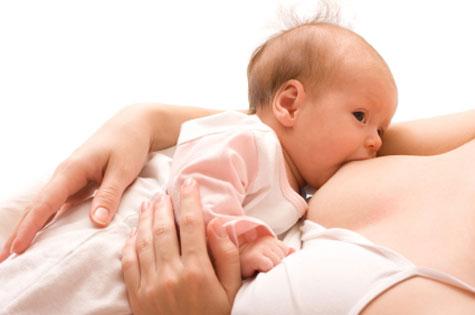It’s presented to us in antenatal classes and the press as the most incredible thing we can give to our babies; renewing the life we created with every feed.
We are told it generates an unimaginable bond between mother and child in the moment of the feed, and has been shown to result in happier, healthier, more balanced children - and even have positive physiological and physical impacts into adulthood.
Ultimately it’s what many of us see as the purest expression of our love for our new child. Immaterial of the medical and media noise, it’s certainly what nature intended. So, what happens when you’re not able to breastfeed?
Having realised I could not have full control over becoming pregnant, how my pregnancy progressed, or how I gave birth, the only thing I felt certain of before giving birth to my daughter was that I would breastfeed her. I didn’t know for how long, and I fully intended to mix breast and formula at some point, to allow more flexibility and freedom.
I knew from talking to family and friends, and from my antenatal classes, that it was not always an easy, or even pleasurable experience at the beginning. But it didn’t scare me. I’d push through, and use my body as nature intended; to provide food for my baby.
Once the morphine from the birth wore off, and I began to feel pain when I was breastfeeding, I understood. Everyone who warned me how hard it might be was right. Added to that, we were told our daughter has an unusually strong sucking reflex, so I had absolutely no margin for error latching her on.
If I got it wrong, within a couple of minutes, I’d be producing more blood than milk. It was very, very far removed from the relaxing, beautiful experience we were aiming for. It was scary; and actually quite brutal, to have a starving hungry baby desperately trying to latch, and to be in screaming agony when she did.
I am lucky enough to have an amazingly supportive husband, and to be surrounded by family and friends who all told me to simply do what felt right. But the truth is each time I said I intended to keep trying to breast feed rather than any alternative; I could see the relief in their faces.
So, we practised and practised until we got it right, and when we did, it was a gentle, lulling joy. The speed with which it went from horror to happiness was incredible. Within a few days, the two of us were wrapped in a blanket of love. The times we got it right, it was incredible to be so close to her, to be creating food for her - to be at one with my baby and my body in the way nature intended. Perhaps because I had an emergency caesarean, it felt particularly special to be able to somehow right the balance by breastfeeding her.
And then I got mastitis. Severely enough that I had a high fever and was readmitted to hospital. I ended up spending more time in hospital with mastitis than I had recovering from the emergency caesarean. It was a hideous and invasive time. Already tired, with the hormone and drug high of birth wearing off, despite the lovely staff in the ward, they were some of my darkest days. And perhaps as a result of the infection and resulting antibiotics, perhaps as a result of the mental trauma from the hospital trip, my milk started to slow. When I got home, the only option was to express, because I was too damaged to feed, even with a shield. So I expressed, and where there wasn’t enough, added a bottle of formula when it was needed.
Over the next week or so, despite expressing after every feed, my milk stopped. And in doing so, it broke my heart. I was shattered to discover that I couldn’t do this treasured thing for my little girl.
But, as with anything sent to try us, it meant I had to once again reassess my beliefs. What is the most important thing? And that’s when it all became clear. It’s not essential to breastfeed. It’s not essential to bottle feed. We become so entranced with whichever view we hold, that we can lose sight of the bigger picture. The only essentials are surely good food, much love and a warm shelter for our kids, from a mother who is healthy and happy enough to sustain those things.
I decided it was time to cut myself some slack. Immaterial of the wishes and beliefs of those I love, mine were the strongest expectations. But I realised that being a mum, especially a new mum, is extraordinarily demanding. It’s a very fragile and vulnerable time, when we question everything we thought we knew. So now, my thought is this: Wouldn’t it be lovely if we could be there to support, not judge, each other on this very personal matter. Before we even open our mouths to ask about breastfeeding, stop for a minute and think that the most likely scenario is that each mother is doing the very best they can. Which is all that can be asked of any of us.








 Agree (6)
Agree (6) Disagree (
Disagree (










__small.png)










